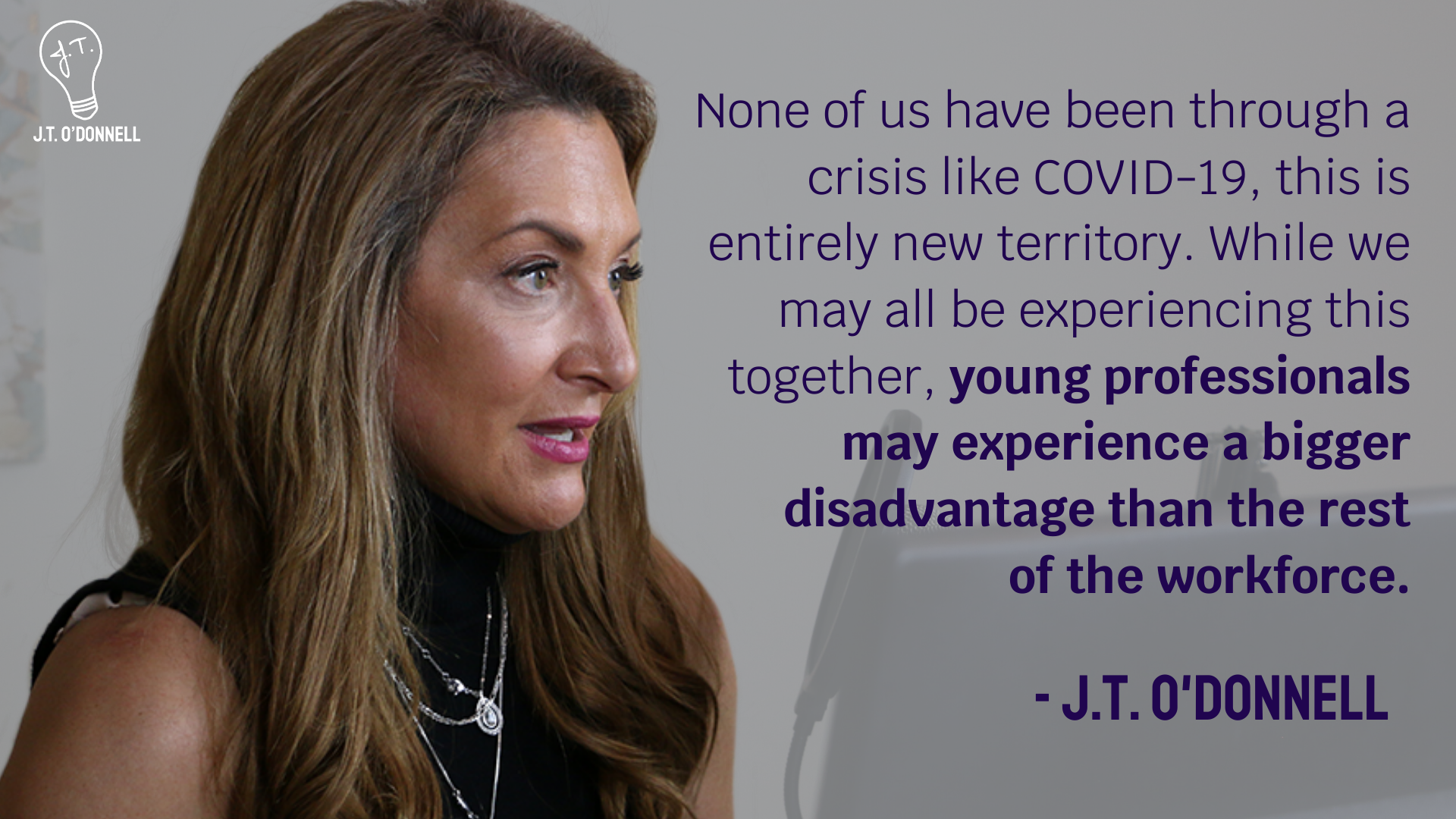I’m not going to lie to you. I’m concerned for everyone right now. I’m worried about the number of people who will lose their jobs because, at a time like this, almost no one is safe. However, there are some groups of workers that are at a higher risk of being laid off than others. One major group is young professionals.
You’re Going To Have To Learn A Very Hard Lesson
None of us have been through a crisis like COVID-19, this is entirely new territory.
While we may all be experiencing this together, young professionals may experience a bigger disadvantage than the rest of the workforce
You’ve never worked during a recession before. In fact, it’s likely you hadn’t even graduated during the last one.
Most of us remember 2008 and what it was like to find and keep a job during that difficult time; unfortunately, this will be a hard lesson you will now have to learn.
Why Do Layoffs Happen?
The idea of layoffs, furloughs, and a recession can be overwhelming and difficult to understand especially to those new to the workforce.
To help you understand how this all works, I want to first talk about what’s happening currently to companies.
When a crisis like COVID-19 hits, companies must look at their leading indicators ( a set of data points that tells the company if they are financially on track).
These indicators are either tracked weekly or monthly depending on the type of industry. The data points tell management how much money and burn rate they have left before they go out of business.
Employees are a huge expense for any company. This is why when a business realizes they need to cut spending in order to stay afloat, layoffs occur.
If Thousands Of People Have Already Been Laid Off, Doesn’t That Mean I’m Safe?
Unfortunately, the layoffs you’ve been hearing about are just the first few waves. There will be more.
You might be wondering, how is this possible? Don’t companies already know if they have the money to keep their employees?
This is where it gets tricky.
Let’s go back to those leading indicators I mentioned earlier. These are how a business knows if they can afford payroll or not. Many of the layoffs we’ve seen were from companies that track their indicators weekly rather than monthly.
For example, food service, and hospitality companies are able to track their indicators weekly which is why many layoffs in those industries have already occurred.
Businesses in other industries have to wait to look at their monthly numbers to determine if and when layoffs will occur.
I want to stress this point because although many layoffs have already occurred, there are still more to come and all employees should be prepared for this.
Why Young Professionals Are At Risk
While you probably work hard every day for your company, there is a good chance that your position will be deemed ‘non-essential’ when push comes to shove.
Why is this?
During times of crisis, the employees that will be seen as essential and worth keeping are the ones who have a direct impact on sales or customer satisfaction.
How Do I Know If My Position Is ‘Essential’?
Think about your current position. Does your job make or save your company money? If so, do you have data to back up your ROI (Return On Investment)?
If your position has no impact on revenue or customers, there is a good chance you will be laid off and your duties will be given to someone else.
What Young Professionals Should Be Doing Right Now
- Understand Your Company’s Expectations Of You. As I mentioned above, when people are laid off, their workload will be given to someone else. There is a good chance your daily tasks will change during this time. It’s important to know this now. Be sure to get clear on how your efforts tie directly to revenue. Come up with a set of metrics you can track, and present quarterly to management to validate you’re delivering value and exceeding expectations.
- Always Prepare For The Worst. No one is safe during a recession, even if your position is ‘essential’. Create a bucket list of companies you want to work for so you can focus your efforts and streamline your job search.
- Grow Your Competitive Advantage. If you are laid off, you need to make sure you’re prepared to tackle the job search process head-on. It’s important to know what skills you should be growing in your industry to stay competitive and agile.
It’s important to remember you don’t have to do this alone. If you are laid off, utilize the numerous free resources out there right now. If you’re looking for help bouncing back after being laid off check out the free training and checklist my team and I put together to help those affected in the recent layoffs
P.S.S. If you don’t think a membership to my company’s career coaching service is for you (yet).
At Work It Daily, we put together the following free career growth tools for you:
- A complete job search checklist.
CLICK HERE to DOWNLOAD the pdf file.
- A list of the 18 most common interview questions.
CLICK HERE to DOWNLOAD the pdf file.
- Free cover letter samples.
CLICK HERE to DOWNLOAD the pdf file.
- Guide to changing careers.
CLICK HERE to DOWNLOAD the pdf file.
- Masterclass on how to avoid common job search mistakes.


